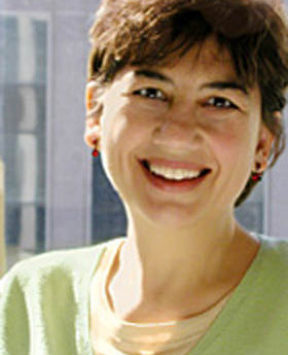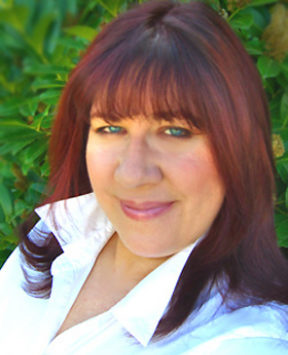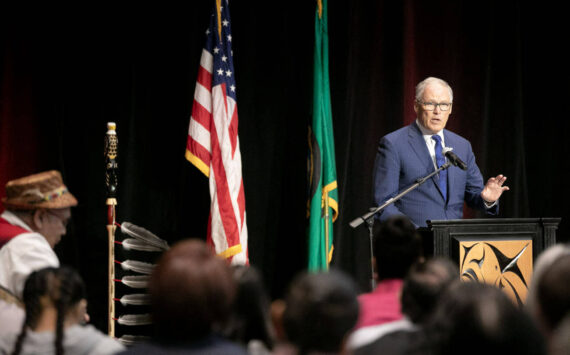Presidential elections are nearing as we close in on November. The political mud throwing is growing and voters are getting bombarded by claims and facts on both sides of the political fence.
It does not matter whether a candidate is Republican or Democrat. The first Amendment to the U.S. Constitution assures freedom of speech and that freedom makes it legal for all presidential candidates to mislead and be less than truthful in attacks against the opposing party’s candidate.
We all need a place we can go that reviews these claims against the facts with an unbiased eye and not motivated by ratings or advertising, like the media. None has existed before now. The Annenberg Political Fact Check project from the Annenberg Public Policy Center of the University of Pennsylvania is here to help us get the facts online.
Brooks Jackson, Director of FactCheck.org, took a few minutes to tell us about his Washington, D.C.-based website and how he checks the claims made by this years Presidential candidates.
Q: Tell us how and why your organization came into existence?
Jackson: I was doing this sort of work at CNN for a long time when I was a correspondent there. The Annenberg Center offered me this job. I thought it was a great opportunity.
Q: Are there rules and regs on how to properly fact check a political ad?
Jackson: On television, humans give so much weight to visual information that if a reporter is saying one thing and the graphics on the screen are saying something else, they tend to filter out what the reporter is saying. Its just background noise. Its the way were wired as human animals.
Q: Who comes to visit FactCheck.org more: journalists, the political camps or just the average consumer that wants to know the deal?
Jackson: Ive been pleasantly surprised just how many civilians have come to our Website. We are getting something like 9,000 visits per day. Twenty-thousand people have signed up to get free e-mail articles. I thought when we started this that wed be primarily a service to other journalists who didnt have time to dig into some of the nitty-gritty to check the factual accuracy of some of these statements. Turns out there are an awful lot of people puzzled by these conflicting claims and thankful for a politically neutral source to try and sorted it out for them.
Q: Would you say the mainstream media is just as unbiased as you are?
Jackson: Ill have to leave it to others to determine if we have unbias or not. We certainly try to be unbiased. We are nonpartisan and we try to be non-ideological. We try to play it right down the middle. I have to say one of our best days was when both the Kerry and the Bush campaigns quoted us – FactCheck.org – in competing news releases, giving us as evidence of the other side shading the facts.
Q: How do you become aware of candidates statements?
Jackson: We do try to monitor what the candidates are saying and what their campaigns are putting out, first and foremost, for any TV ads they are putting out because so much money is spent on those and, for so many voters, it is a primary way they get their information. It is also the way campaigns sum up, in little 30-second digests, what they think is the most important thing to say that day. We also look at the debates, what is said in interviews, the whole campaign dialog.
Q: How do you go about fact checking them?
Jackson: We look to see if there are any factual claims made. A lot of ads dont make any factual claims. We were all reminded recently of those Ronald Reagan reelection ads that say Its morning again in America. Well, that doesnt state a fact, it states an allegory.
If factual claims are being made, for example John Kerry voted more than 350 times for higher taxes – then we take a look at that. In this particular case, the Bush campaign, sure enough, has a list of 350 votes but if you look at it closely youll find that most of those votes were really votes to keep taxes the same because he voted against somebodys proposed tax cut. Well, they say he voted for taxes that were higher than they would have been if he voted the other way. Well, thats not the way most people would hear that. We dig into things like that. There are plenty of examples on the Kerry side, too, of facts that we had to dig into that were not exactly on the up and up.
Q: I find it fascinating that it is not illegal for political candidates to lie to get elected.
Jackson: Its absolutely true and we get e-mails all the time from people asking why there isnt a law against lying to the voters. A lot of people are shocked to find out that, while it is illegal for commercial advertisers of toys or soap or anything else to put up false or misleading advertising and the Federal Trade Commission can jump in and extract fines and order these ads to be taken off the air, there is no such law, at least at the federal level, regarding campaign ads. There is actually a pretty good reason for that. The First Amendment is supposed to guarantee freedom of speech and especially freedom of speech for candidates for office. Thats what democracy is all about – getting ideas out there and letting voters decide.
Q: But thats a tough thing. We all went to the truth and the facts.
Jackson: Well, nobody said democracy was going to be easy! There have actually been states that have tried to outlaw false political advertising and it turns out to be a very tough thing to enforce. Sometimes they run into problems in the courts because the laws just overreach and are held to violate freedom of speech. Other times the laws that pass muster just dont end of extracting very significant penalties or being very much of a deterrent. So basically, voters just have to be aware that its legal, for the most part, for candidates just to lie to you just as much as they want.
For more conversation with Brooks Jackson, his full interview will broadcast Saturday on KLAY 1180 AM at 11 a.m., Tuesday on KVTI 90.9 FM at 10 p.m. and is online at WebTalkGuys.com.
This weeks Internet news tips
E-mail volume continues to grow
The total volume of e-mail will approach 2 trillion in the U.S. by the end of 2004. According to the E-Mail Marketing Report, just released by eMarketer, e-mail is more popular and more pervasive than ever. It is the online activity practiced by most Internet users. The compounded annual growth rate for e-mail, according to eMarketer, is 14.6 percent from 2002 through 2007.
A Pew Internet & American Life Project survey found that 91 percent of Internet users between the ages of 18 and 64 send or read e-mail, and an even higher number of users age 65 or older do the same. Nothing but online search even comes close.
Senate bill targets P2P networks
Senate leaders last week introduced a bill to make it easier to sue peer-to-peer services like Kazaa, which allow users to copy music and movies for free over the Internet. The Inducing Infringement of Copyrights Act of 2004 would allow companies to be held liable if they intentionally induce copyright infringement.
ComDex hits the end of the road
ComDex, the big computer show in Las Vegas, seems to have hit the end of the road. This years event date has been delayed without an announcement of a future date. ComDex used to be the biggest trade show in the U.S., but has now been surpassed by the annual Consumer Electronics Show (CES), held every January in Las Vegas.






